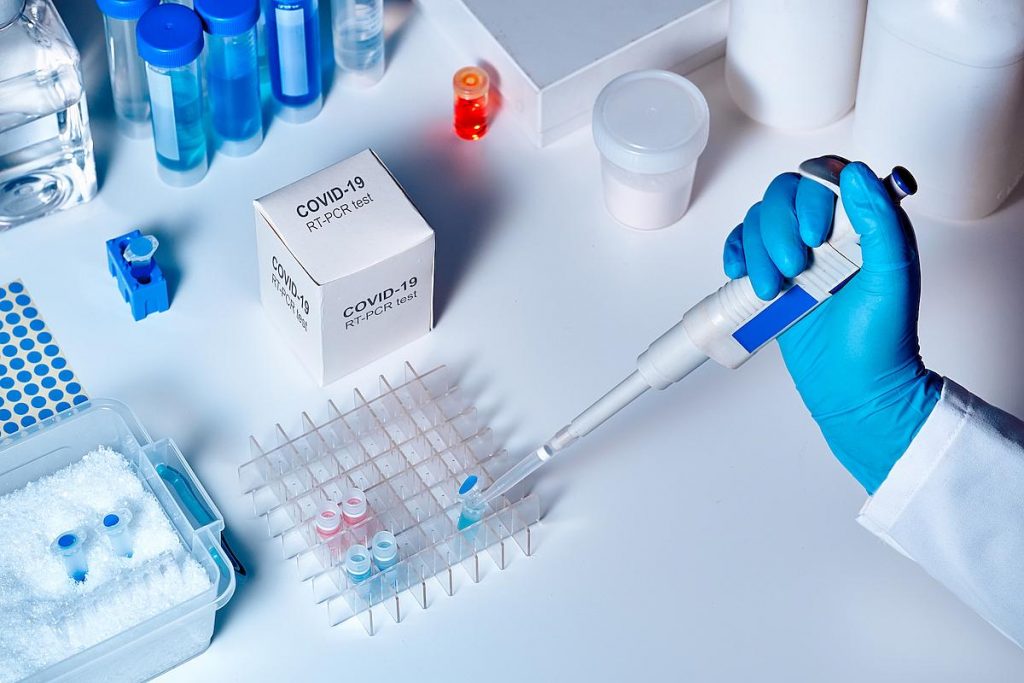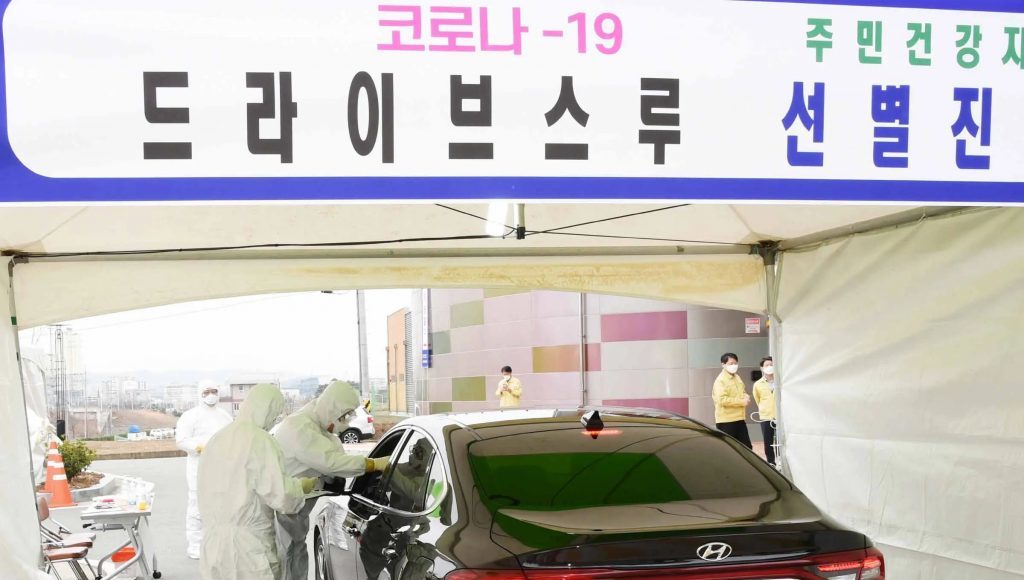RIO DE JANEIRO, BRAZIL – The rector of the Federal University of Pelotas (UFPEL), which conducts statistical analysis of the spread of Covid-19, hopes that the Ministry of Health will release more tests in order to double the research stages that will determine the percentage of asymptomatic individuals and real mortality rates of the disease in the country.
Between this week and the month of June, approximately 100,000 people in Brazil will be tested for Covid-19 as part of the largest ongoing study on the spread of the novel coronavirus in the Brazilian population.
Conducted by the Federal University of Pelotas (UFPEL), in Rio Grande do Sul, the research will comprise three stages, in a sample modeling that will allow the accurate calculation of the virus contagion index, something that has not yet been done on a national scale.

“It is the largest study in the world. In Austria, one was conducted with 1,500 people, in Santa Clara, in the United States, they tested about 3,000 people. There was another study in Gangelt, Germany, but much smaller, and in Italy 3,300 tests were conducted in a survey,” compares Pedro Hallal, rector of UFPEL and an epidemiologist.
In each of the three stages, 33,250 people will be tested in 133 Brazilian municipalities. Rapid tests will be used that detect both the presence of IgM (most recent infection), and IgC (oldest infection) antibodies from blood samples collected. The tests should start to be performed soon after the Tiradentes national holiday on April 21st.
But the Rector of the university hopes to be able to double the survey stages if he is granted more tests by the Ministry of Health. “This is an unknown disease. What’s at stake here is the decision on whether to follow its development through a short film or a feature film”.
Nelson Teich advocated mass testing when he took office as the new Health Minister last week. “The more we understand about the disease, the greater our ability to manage the present, plan for the future, and emerge from this isolation and distancing policy. To get to know the disease, we will have to conduct a testing program,” he said, referring to the chance of increasing the volume of tests that show the percentage of contagion among Brazilians.
The epidemiologist and UFPEL Rector is optimistic about the new Minister’s statement and hopes to be able to extend the study to six stages, as originally planned, and not have to limit it to only the three so far approved by the portfolio.
The Ministry of Health had announced its support for the UPFEL study when still under Luiz Henrique Mandetta’s administration. “There are many asymptomatic people who acquire antibodies or even people with mild symptoms and, therefore, do not seek care. We still have the intensive, severe and critical forms. It is the sum of this that will provide us with immunity,” said Mandetta on the occasion, announcing the partnership with the University of Rio Grande do Sul. There are R$12 million (US$2.4 million) in funding from the federal government and an additional R$1 million from the Serrapilheira Institute.
“Three stages are not enough to fully understand the behavior of this pandemic. It is very early in several locations. The six stages would enable us to watch the epidemic growing where it is still smaller, which is the reality of almost all the states of the Federation. We will only benefit from expanding the study,” argues the rector.
The study’s first findings, which has already begun in Rio Grande do Sul, point out that there are at least seven times more cases in the state than those officially confirmed by the authorities. This means that instead of the 904 patients reported this Monday by the State Health Secretariat, at least 6,328 people in Rio Grande do Sul have already been contaminated by the virus – one sixth of the more than 40,000 cases confirmed in the country by the Ministry of Health, which data are also underreported.
Rio Grande do Sul, which is the sixth most populous state in Brazil (with almost 11.3 million inhabitants), has confirmed 27 deaths from Covid-19, almost seven times less than Amazonas, which has three times fewer inhabitants and totaled 185 deaths by Monday. According to Hallal, a potential extension of the research stages would enrich comparative analyses, which are crucial to better understand the expansion curve of the novel coronavirus in Brazil, as well as the specificities of each Brazilian region.
Data can support decisions on social distancing
The survey conducted by UFPEL will not only determine the rate of Covid-19 contamination in the Brazilian population but should also determine the percentage of asymptomatic cases and the real mortality rate of the disease in the country. Today, all of this data is estimated, based on underreported figures in Brazil, which makes it difficult to estimate the hospital resources required to face the pandemic.
The lack of reliable statistics also adds to the complexity of deciding whether to maintain or relax social isolation measures – which currently prevail in the country, despite President Jair Bolsonaro’s insistence on a full return to economic life and on maintaining only high-risk groups in isolation. “Approximately 70 percent of the population will be infected. This is true. It is no use running from the truth,” said Bolsonaro on Monday, as he again advocated the reopening the economy.
“There is certainly a lack of evidence. Decisions are being made with what is visible of the iceberg, what we can see from the experience of Brazil and the world. Our research will allow managers to stop looking only at what is above water, and understand the whole thing”, explained rector Pedro Hallal, in an interview with El País.
According to the provision already agreed with the Ministry of Health, UFPEL’s tests and questionnaires will be conducted in 22 municipalities in Brazil’s North region, 42 in the Northeast, 14 in the Center-west, 33 in the Southeast, 21 in the South and one in the Federal District. There will be three field stages, with a 15-day interval between them – and the data collected will always be disclosed at the end of each phase.

In Rio Grande do Sul, trade has returned to operation
On April 15th, the same day Pedro Hallal submitted the data from the first stage of the study in the state (which showed seven times higher contagion than reported by the authorities), state governor Eduardo Leite announced the suspension of the social containment measures for most of the territory of Rio Grande do Sul. The decision came as a surprise, since the expected peak in cases in Rio Grande do Sul was not to occur before June, as previously reported.
Only the metropolitan regions of Porto Alegre and Serra Gaucha were left out of the decision. “The next morning, the city halls freed everything, without a reopening plan. We know that those who made such decisions elsewhere in the world deeply regretted it,” laments Pedro Hallal.
The debate on the issue had been heated since the turn of the month, when 15 municipalities in the interior rebelled and decided to reopen commercial establishments in defiance of a state decree that ordered their total closure until April 15th. The Prosecutor’s Office had to step in so that the mayors would comply with the governor’s orders, alerting them to the fact that they could be held liable for an impeachable offense if they kept stores open.
In the center of this area of Italian colonization, high industrial activity and important GDP for Rio Grande do Sul lies Caxias do Sul, the city of the Grape Festival, whose pavilions house homeless people during the pandemic. It is the city with the second highest number of Covid-19 cases in the state, with 44 confirmed reports. After Eduardo Leite’s decree was suspended, Mayor Flávio Cassina authorized the opening of shopping malls, as long as the workforce remained restricted to 50 percent of the usual number.
“Proportionally to the population, we have few cases: there are 510,000 inhabitants,” Cassina says. The municipality has 60 percent of its ICU beds filled, but two field hospitals are now ready to be activated in case of need, each with about 70 beds, which gives the mayor greater peace of mind over his decision.
Pelotas, the city where Pedro Hallal’s university is located and is governed by Mayor Paula Mascarenhas, successor to Governor Eduardo Leite in the municipal chair, did not join the decision. “As a researcher, I don’t like to work with futurology. Most of those who have made predictions about the peak of the disease have been wrong. But here in Pelotas our research group has developed a model based on real data that forecasts the most critical moment for the first week of June”, he estimates.
Capital city mayor wants South Korean standard tests
The epicenter of the novel coronavirus epidemic in Rio Grande do Sul, Porto Alegre has doubled its commitment to social isolation with the hiring of sound cars, which have started to drive around the city with warnings for the population to remain at home. Until then, this service was carried out by the Municipal Guard, in cars equipped with ordinary loudspeakers.
“We are experiencing a crisis in which real life is imposed, and the law and judicial decisions come long after the events. Two or three days can save many lives. That’s why we understood that this measure was coherent and we implemented it immediately so that even unsuspecting people become aware. We are not going to change habits through the law, but through a culture of awareness,” explains Mayor Nelson Marchezan Júnior, who has been strict in maintaining social isolation.
Marchezan works with three indicators to assess the commitment of the capital of Rio Grande do Sul to the epidemic. The number of deaths by Covid-19 – which was ten until Monday – and the ICU bed occupation rate in the city, which is updated in real time on the Internet, are the two main indicators at the moment.
As a result, his energy is now fully focused on being able to apply hundreds of daily tests to the population of Porto Alegre. “Our effort is to reach the most successful testing level in a country, which is South Korea. They’ve conducted 400 tests a day, we probably won’t get that many, but we want to get close in order to achieve a knowledge and protection differential,” he explains.
The mayor is still unable to detail the strategy to achieve this goal, since the whole world is facing difficulties in increasing population testing. Currently, the Santa Casa de Misericórdia Hospital of Porto Alegre runs 30 daily tests, and there is a reinforcement of tests sent by the Ministry of Health. “We are trying to achieve this with our own resources (from the SUS), and also by asking for help from private institutions. This is a priority,” he concludes.
Source: El País

